Russia recovered quickly and even grew over the past year despite a series of sanctions from the West, thanks to leverage from the defense and oil and gas industries.
"We have proven more than once that Russia can solve the most difficult problems and will never retreat, because no force can divide us," President Vladimir Putin stressed in his New Year message to the country's people.
Mr Putin also declared that Russia would "resolutely defend its national interests, freedom and security, as well as its values". Observers said Mr Putin's statement showed Russia's confidence in overcoming an unprecedented wave of sanctions from the West amid the prolonged war in Ukraine.
After the outbreak of hostilities in February 2022, successive Western sanctions pushed Russia into recession for months. However, the Russian economy has shown signs of bouncing back from the difficulties, at least in terms of indicators.
After about 10 months of contraction, the Russian economy regained growth momentum in August, according to a report from the Center for Macroeconomic Analysis and Short-Term Forecasting (TsMAKP). Russia's GDP grew by 5.5% in the third quarter and by 3.2% in the first 10 months of the year. Growth was even stronger than before the war, with GDP this year about 1.1 percentage points higher than in 2021.
"Anyone with enough sense understands that these are positive signs for the Russian economy," President Putin declared at a press conference late last year.
Russia is outperforming forecasts from the Ministry of Economic Development and the Central Bank in Moscow, which at the beginning of the year predicted GDP growth of no more than 2% in 2023. Now, research and consulting firm Bloomberg Economics estimates that Russia's GDP growth this year will exceed 3%, while President Putin is confident that the figure will exceed 3.5%.
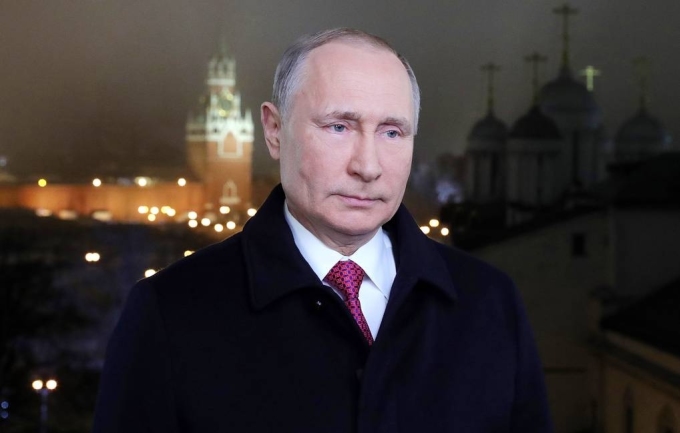
Russian President Vladimir Putin in his New Year's speech on December 31, 2023. Photo: TASS
Alexandra Prokopenko, an expert at the Carnegie Center for Russia and Eurasia and a former adviser to the Russian Central Bank, noted that Britain and Germany are unlikely to achieve growth as high as Russia this year. Russia's growth forecast for 2024 is currently hovering between 1% and 3%.
"The driving force behind this growth is the war economy, with defense-related industries growing at double-digit rates. This growth is largely due to government spending on the war in Ukraine," she said.
Russia’s budget deficit in 2023 is estimated to be around 1% of GDP, half the initial forecast, despite a surge in defense spending over the past two years. President Putin approved a three-year fiscal plan in November that would increase the defense budget by around 30%, double the pre-war level of 15%.
Annual spending on defense and national security in Russia is likely to exceed 6.2% of GDP, reaching 8% next year and accounting for about 40% of total budget spending. According to Prokopenko, this includes spending on the Russian Defense Ministry, the National Guard, the Federal Security Service (FSB), and the prison and correctional system. In addition, Russia's economic growth is also being fueled by reconstruction and development projects in four new regions annexed by Russia during the war with Ukraine.
"For the first time in modern Russian history, defense spending has exceeded social spending. Spending on people's lives next year will account for less than 5% of GDP," she analyzed.
Despite the huge spending plan, the Russian government is confident of keeping the budget deficit under control thanks to strong growth in goods output and stable revenues from the oil and gas industry.
According to Sergey Aleksashenko, deputy governor of the Russian Central Bank, oil and gas have become an effective "shield" for the Russian economy against the net of international sanctions. The economic model dependent on resource extraction was once considered "underdeveloped" by the West, but now plays a key role in helping Russia maintain its economic cycle and the war in Ukraine.
"Russia's budget size is still growing and quite balanced, thanks to oil and gas revenues that ensure Russia has money to invest domestically," said Semeninkhin Roman, CEO of financial institution Ingosstrakh Investments.
Roman said that sanctions imposed over the past two years have not been as effective as the West had hoped. On the contrary, investors in Russia are increasingly optimistic about the country's financial future.
Ironically, the West’s financial isolation measures appear to be working in Russia’s favor. Its isolation from the international system makes it less vulnerable to financial shocks from outside its borders.
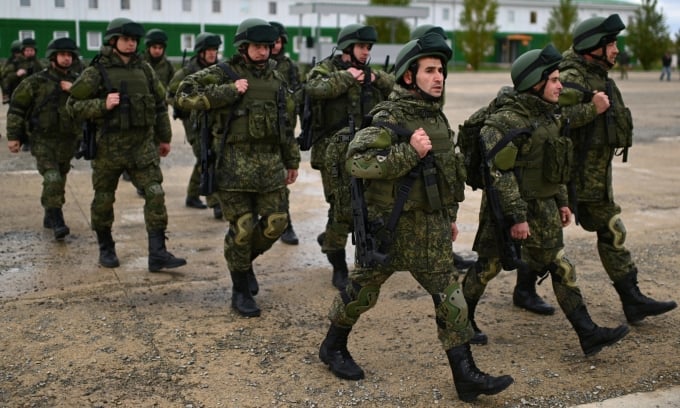
Russian reservists conduct exercises in Rostov region in October 2022. Photo: Reuters
Manufacturing in Russia is also growing as domestic entrepreneurs fill the void left by foreign companies withdrawing investment from Russia in 2022 in protest at the war in Ukraine.
Domestic fashion businesses have taken back about 85% of the space left by foreign companies when they "flee" the Russian market.
However, expert Alexandra Prokopenko said that Russian policymakers are betting heavily on the oil and gas “shield”. Moscow can maintain a large defense budget to boost production and the economy as long as world oil prices remain high.
Russia forecasts Brent oil prices at $85 per barrel and Urals oil prices at $70 per barrel.
On the other hand, inflation is becoming a potential risk to the stability picture in Russia. Prokopenko said that Russia will find it difficult to maintain inflation at 4.5% with the current strong increase in budget spending. Russia is recording a "record low" unemployment rate, but the driving force behind this index is the reality of labor shortages.
“Surges in wages in many sectors, including the defense and military-industrial complex, are fueling inflation in the consumer sector,” said Yaroslav Kabakov, chief strategist at Russian investment firm Finam. “Overheating of the economy is also having a negative impact.”
During his annual pre-Christmas press conference, President Putin had to make a rare apology to the public on television after a pensioner complained to him about soaring egg and chicken prices.
"Russia's current indicators are extremely bright, but the underlying dynamics are potentially unstable. President Putin is facing three challenges for 2024: pouring money into the war in Ukraine, maintaining a smooth business image in Russia and ensuring macroeconomic stability," said expert Prokopenko.
Thanh Danh (According to Meduza, Channel NewsAsia, NPR )
Source link





![[Photo] Prime Minister Pham Minh Chinh chairs conference on anti-smuggling, trade fraud, and counterfeit goods](https://vphoto.vietnam.vn/thumb/1200x675/vietnam/resource/IMAGE/2025/5/14/6cd67667e99e4248b7d4f587fd21e37c)


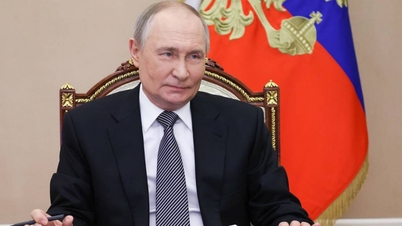





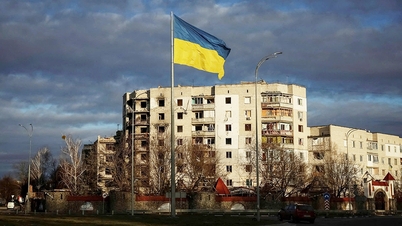
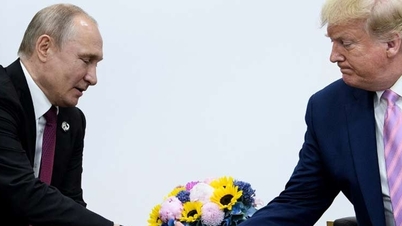



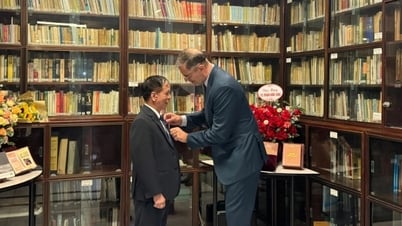

![[Infographics] Vietnam re-elected Chairman of the World Customs Organization's Standing Technical Committee](https://vphoto.vietnam.vn/thumb/402x226/vietnam/resource/IMAGE/2025/5/14/ae5e22967ce14621b808fd71d3308f63)
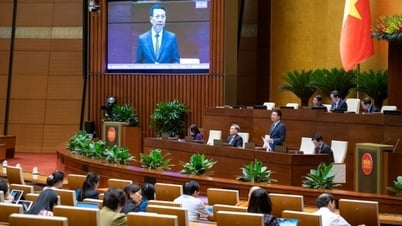
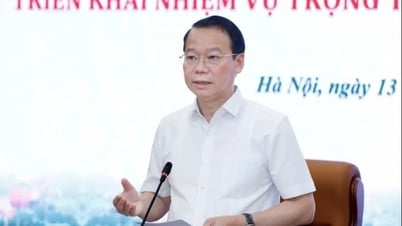




























































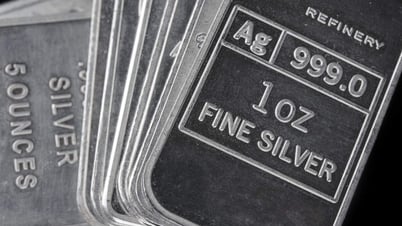
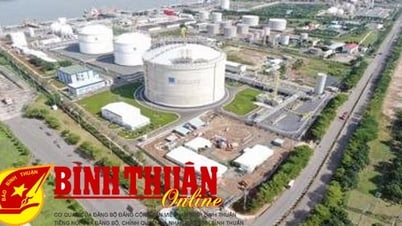
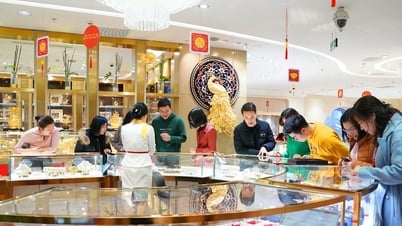
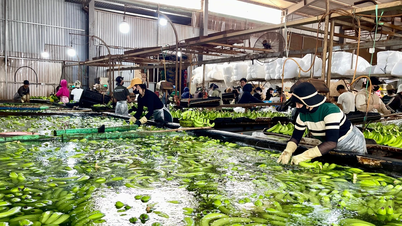










Comment (0)